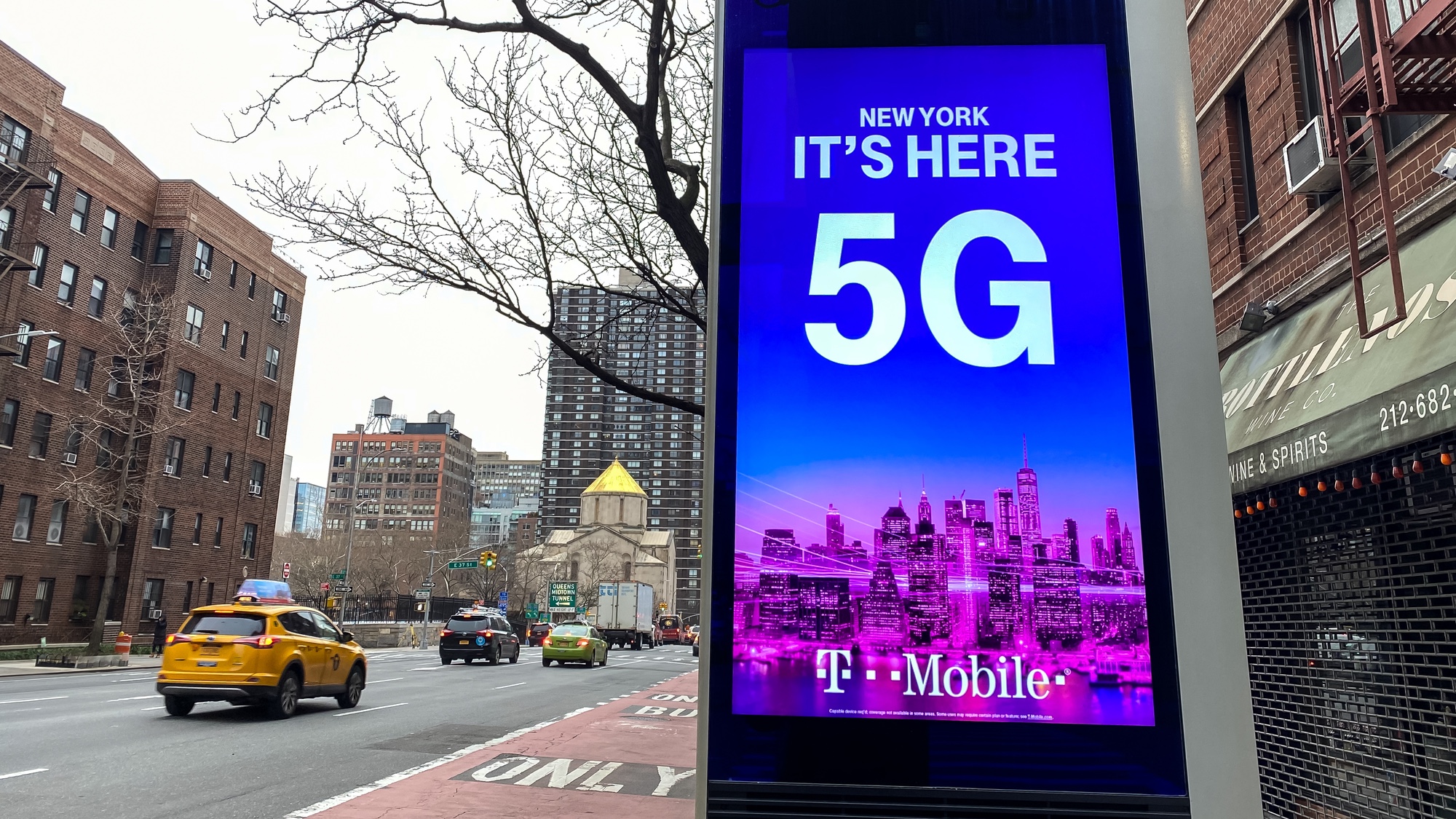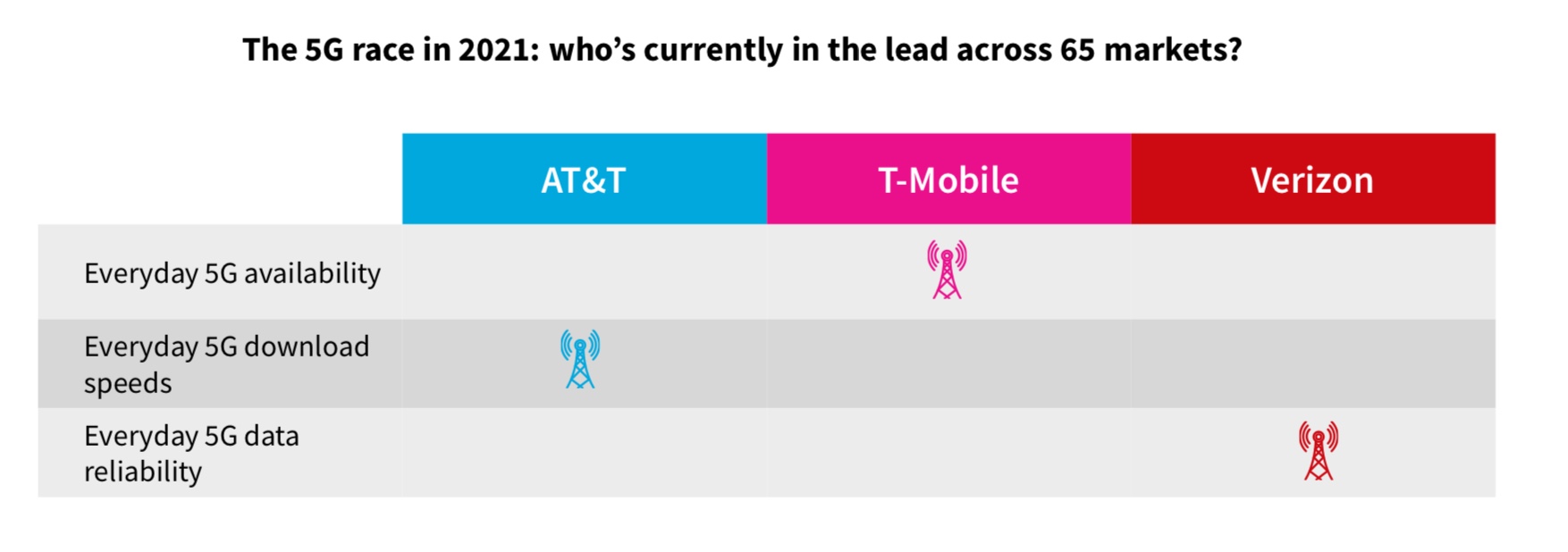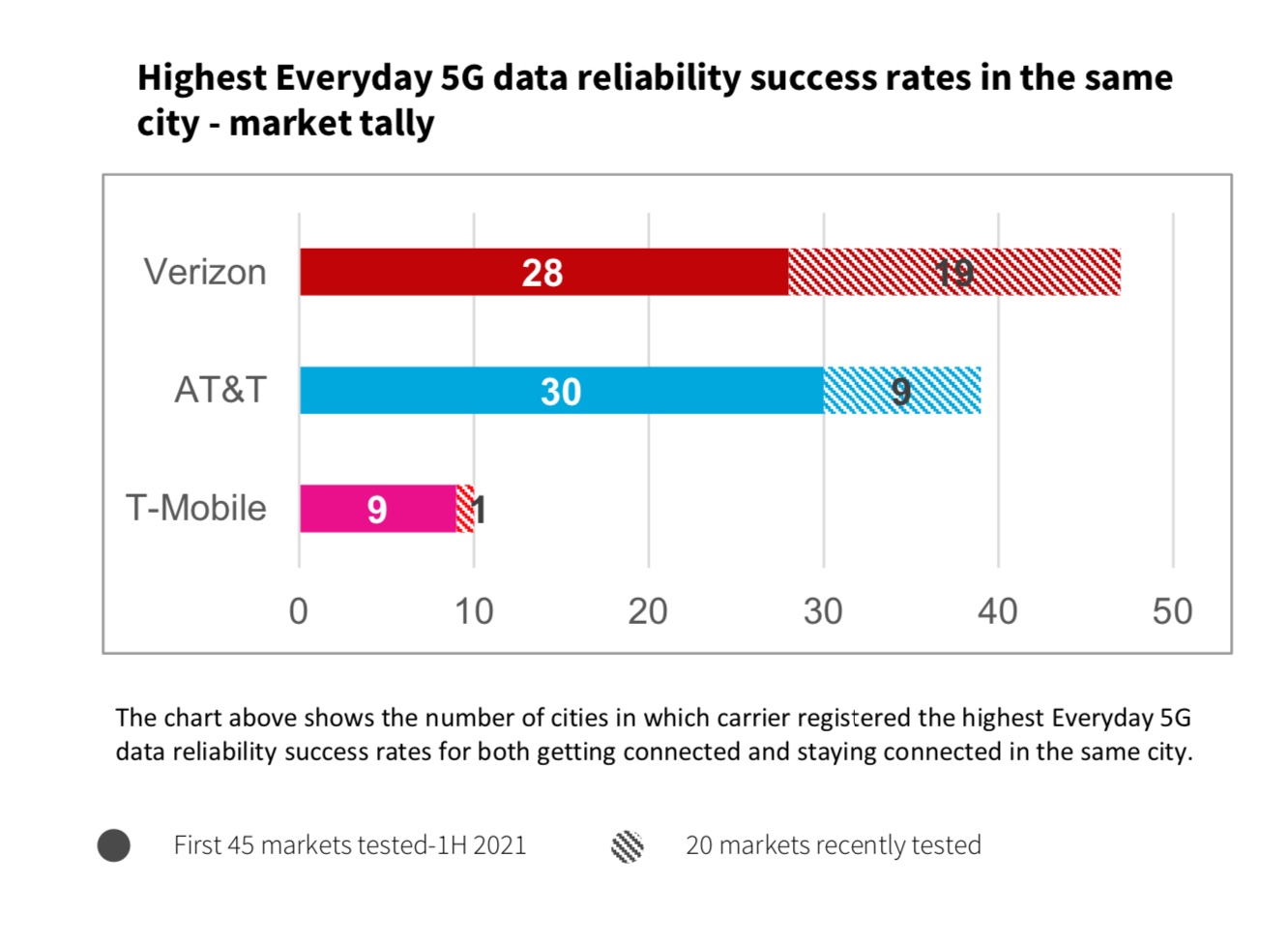Who has the best 5G? New report reveals who’s up, who’s down
Verizon's speeds are improving, while T-Mobile has the best availability in new RootMetrics report

Nearly five full months into the new year, AT&T 5G continues to hold an edge over rival carriers when it comes to 5G speeds, according to figures released by testing firm RootMetrics. But those rivals are picking up speed, too, with Verizon 5G in particular closing the gap.
That's the latest word from RootMetrics, which has published a partial report on the state of 5G performance today (May 26). RootMetrics' survey looks at 65 of the 125 most populated metro areas in the U.S., measuring 5G speed, availability and reliability.
- Here are the best 5G phones right now
- When is 5G coming to you? The definitive guide
- Plus: Samsung calls iPhone 12 a 'downgrade' — you be the judge
RootMetrics typically publishes a report every six months on network performance, and in its most recent survey covering the second-half of 2020, AT&T finished on top for 5G speeds. Today's release is a progress report of sorts with AT&T still in the lead based on testing in those 65 markets.
AT&T had the best speeds in what RootMetrics calls "Everyday 5G," which combines test results for both 5G-only and 5G mixed mode where a phone switches between 5G and LTE during the same data activity. (That's increasingly common, the test firm says.) In 14 of the 20 recently tested cities, in fact, AT&T saw its median download speeds improve.
The trouble for AT&T is that speeds are improving for other carriers too. In particular, Verizon saw the fastest Everyday 5G download speeds in more cities than its two competitors, narrowing the gap with AT&T's overall lead. RootMetrics says that Verizon has surpassed T-Mobile in terms of speed, reflecting improvements after Verizon turned on its nationwide 5G network in October of last year.
The 5G speed news wasn't all bad for T-Mobile, though, which saw its median download speeds improve in 19 of the 20 cities RootMetrics recently tested compared to the carrier's 5G performance in the second half of last year. T-Mobile is in the process of building out its Ultra Capacity 5G network, which leverages Sprint's 5G bandwidth to improve the overall speed of the T-Mobile 5G network. T-Mobile aims for Ultra Capacity 5G to have nationwide reach by the end of 2020.

RootMetrics' latest report offers something for everybody, if you look beyond speeds. T-Mobile — which trails both AT&T and Verizon in the Everday 5G download speed category — beats the competition when it comes to 5G availability. Among the cities surveyed, T-Mobile offers 5G availability of 90% or better in five cities, with AT&T achieving that mark in just one. In Oklahoma City, RootMetrics says that T-Mobile is nearly at 100% availability for 5G connectivity.
Sign up to get the BEST of Tom's Guide direct to your inbox.
Get instant access to breaking news, the hottest reviews, great deals and helpful tips.
Meanwhile, Verizon led the pack in 5G reliability, which measures the success rate of getting connected and then staying connected to a carrier's 5G network. Big Red had the best reliability marks in 19 of the 20 most recently tested cities, vaulting Verizon past AT&T in the reliability rankings.

RootMetrics' latest report provides only a partial picture of the state of 5G during the first half of 2021. We're likely get more definitive numbers later this summer. Still, the results do give us a sense of how the 5G market is currently shaping as the carriers work to improve both its 5G speeds and reach.
That's important to know since for many people — even those with 5G-ready phones — the full benefits of 5G aren't being realized just yet. Speeds are faster than with LTE on average, but not remarkably so. And while every carrier has launched nationwide 5G, the faster networking standard isn't as ubiquitous as LTE. Numbers like the ones released by RootMetrics can show us that progress is being made, but that there's still a long way for us to go on 5G.
Philip Michaels is a Managing Editor at Tom's Guide. He's been covering personal technology since 1999 and was in the building when Steve Jobs showed off the iPhone for the first time. He's been evaluating smartphones since that first iPhone debuted in 2007, and he's been following phone carriers and smartphone plans since 2015. He has strong opinions about Apple, the Oakland Athletics, old movies and proper butchery techniques. Follow him at @PhilipMichaels.

